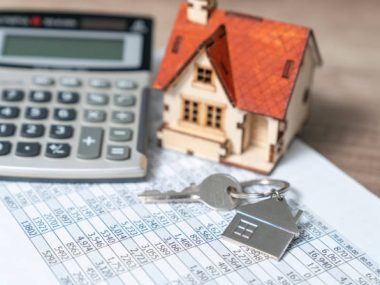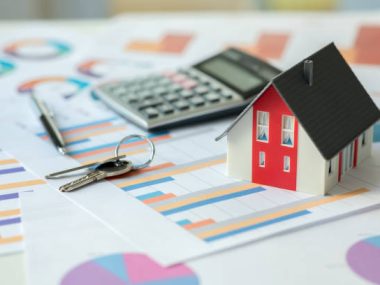How does a reverse mortgage work in Florida? A reverse mortgage is a unique financial tool that allows homeowners, especially seniors, to tap into the equity they have built up in their homes over the years.
This financial arrangement can provide a steady stream of income, a lump sum, or a line of credit, helping individuals to cover their expenses and enhance their quality of life during their retirement years.
In the state of Florida, where a significant portion of the population comprises retirees, understanding how a reverse mortgage works is of paramount importance for those seeking financial stability in their later life.
Unlike traditional mortgages where homeowners make monthly payments to the lender, a reverse mortgage offers a reverse scenario.
In this arrangement, the lender pays the homeowner, effectively converting a portion of the home’s equity into usable funds.
This can be particularly beneficial for retirees who want to supplement their retirement income without the burden of monthly payments.
However, the intricacies of reverse mortgages can be complex, and it’s crucial for individuals in Florida to have a comprehensive understanding of the process, benefits, risks, and legal implications before considering this financial option.
This article aims to demystify the concept of reverse mortgages in the context of Florida’s unique housing market and regulatory environment.
Also Read:
Can a Non-Veteran Assume a VA Mortgage?
Who Qualifies for Physician Mortgage Loans?
How Does a Reverse Mortgage Work in Florida?
A reverse mortgage in Florida is a financial arrangement that enables homeowners, particularly seniors, to convert a portion of their home equity into cash without the need to sell or relinquish ownership.
Unlike traditional mortgages, where homeowners make monthly payments to lenders, a reverse mortgage works in reverse: the lender provides funds to the homeowner, either as a lump sum, periodic payments, or a line of credit.
Eligibility for a reverse mortgage in Florida typically requires the homeowner to be at least 62 years old, have substantial home equity, and live in the property as their primary residence.
The loan amount is determined by factors like the home’s value, the homeowner’s age, and prevailing interest rates.
As homeowners receive funds from the reverse mortgage, interest accrues on the borrowed amount.
Repayment is typically deferred until the homeowner moves out of the home, sells the property, or passes away.
At that point, the loan, including accrued interest, must be repaid.
If the home’s value exceeds the loan balance, the homeowner or their heirs can retain the remaining equity.
While a reverse mortgage can provide financial flexibility and supplement retirement income, it’s essential to be aware of potential drawbacks, such as fees, interest accumulation, and impact on inheritances.
Counseling is mandatory for potential borrowers to ensure they understand the implications fully.
In Florida’s aging demographic landscape, understanding how a reverse mortgage works can offer seniors a way to access funds for their retirement needs while retaining ownership of their homes.
Eligibility Criteria for Reverse Mortgages in Florida
To qualify for a reverse mortgage in Florida, homeowners must meet specific eligibility criteria set by the Federal Housing Administration (FHA) and lenders.
Generally, applicants need to be at least 62 years old and own a primary residence, which must be a single-family home, a two-to-four unit property, a federally-approved condominium, or a manufactured home meeting FHA guidelines.
Crucially, the homeowner should have substantial equity in the property, as this determines the amount they can borrow.
While credit scores aren’t typically considered for eligibility, financial assessments may be conducted to ensure the homeowner can meet property tax, insurance, and maintenance obligations.
Additionally, applicants must participate in HUD-approved reverse mortgage counseling, aimed at providing comprehensive information about the terms, benefits, costs, and potential implications of a reverse mortgage.
This ensures that homeowners fully understand the commitment they are entering into.
For spouses, it’s essential that both individuals meet the age requirement, as the younger spouse’s age impacts the amount that can be borrowed.
Recent regulations have also sought to address the rights of non-borrowing spouses, providing them with more protection to continue living in the home even if the borrowing spouse passes away.
By meeting these eligibility criteria, homeowners in Florida can access a reverse mortgage to supplement their retirement income while maintaining ownership of their homes.
Types of Reverse Mortgages Available in Florida
In Florida, homeowners have access to three primary types of reverse mortgages: Home Equity Conversion Mortgages (HECMs), proprietary reverse mortgages, and single-purpose reverse mortgages.
HECMs are insured by the FHA and offer various disbursement options.
Proprietary reverse mortgages, offered by private lenders, often have higher borrowing limits but may come with unique terms.
Single-purpose reverse mortgages, typically provided by state or local government agencies, are designed for specific purposes like property tax payments.
Understanding these options is crucial, as each type has its own features, benefits, and considerations, allowing Florida homeowners to choose the one that aligns best with their financial goals.
Steps Involved in Applying for a Reverse Mortgage in Florida
Applying for a reverse mortgage in Florida involves several key steps. First, determine eligibility based on age, home type, and equity.
Next, attend mandatory counseling to understand the terms and implications.
Submit an application with the required financial information and select a payment plan.
The lender appraises the home, assessing its value.
After approval, you receive the funds as a lump sum, line of credit, or regular payments.
Throughout the process, comply with property tax and insurance requirements.
Upon moving out, selling, or passing away, the loan becomes due, including accrued interest.
Carefully navigating these steps ensures a successful reverse mortgage experience in Florida.
Also Read:
Can I Get a Mortgage with Unfiled Taxes?
Can An LLC Get a Mortgage? (Find Out Now)
Conclusion
Understanding how a reverse mortgage works in Florida is crucial for seniors seeking financial stability during their retirement years.
This unique financial tool allows homeowners to tap into their home equity while retaining ownership.
As Florida’s aging population grows, the flexibility of a reverse mortgage offers a way to access funds for various needs.
However, it’s vital to weigh the benefits against potential drawbacks, including fees and interest accumulation.
With mandatory counseling and careful consideration, seniors can make informed decisions, optimizing the benefits of a reverse mortgage and ensuring a more secure financial future in the Sunshine State.






